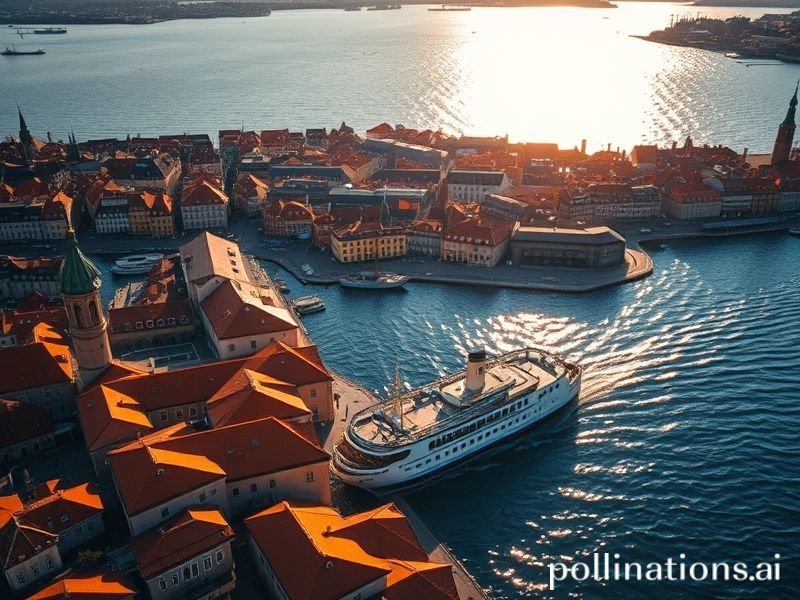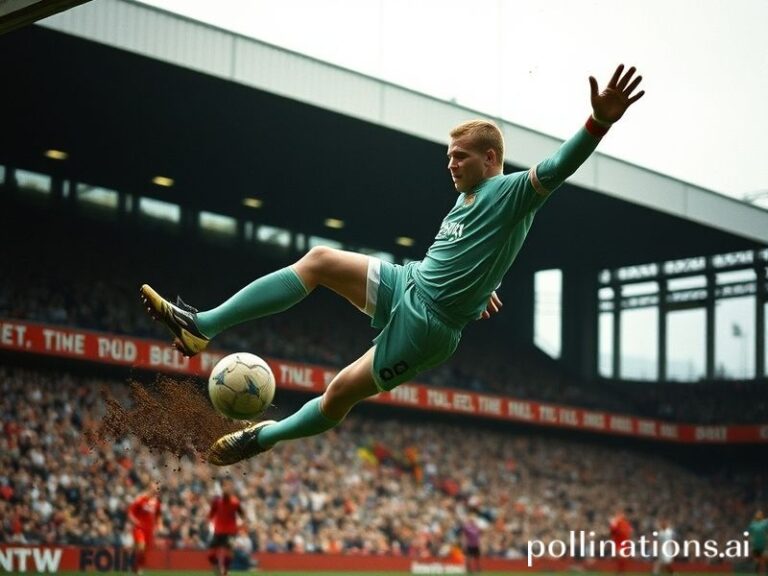Sweden: The Polite Superpower Quietly Rearranging the World Order
Sweden: A Nation So Pleasant It Hurts
By Dave’s Locker International Desk (and a lukewarm cup of overpriced filter coffee)
STOCKHOLM—Somewhere between the 14th-century cobblestones and the 5G antenna disguised as a birch tree, Sweden has managed to become a geopolitical Rorschach test for the rest of the planet. To American progressives, it’s a pastel-coloured utopia where childcare is free and everyone looks like they walked out of an H&M catalogue. To Russian state television, it’s a degenerate bacchanalia of gender-neutral kindergartens and NATO-curious submarines. To the average Swede, it’s Tuesday—and the queue at Systembolaget still wraps around the block because the state-run liquor stores close at 3 p.m. on the dot, sobriety be damned.
Yet beyond the Instagrammable cinnamon buns lies a country quietly weaponising its own agreeableness. While other nations throw tantrums at the UN, Sweden weaponises consensus the way Switzerland once weaponised chocolate: politely, efficiently, and with lethal long-term consequences for anyone who underestimates the sugar rush. The world keeps waiting for Stockholm to pick a fight and instead receives another PowerPoint on sustainability metrics. It’s infuriating. It’s also brilliant.
Consider the global implications of a place that exports both pop music and precision-guided missiles—often in the same fiscal quarter. When Spotify streams ABBA’s “Waterloo” in Jakarta, a Saab-built radar system hums somewhere in the Baltic, ensuring the song arrives without Russian interference. Soft power and hard power, wrapped in the same IKEA flat-pack. The instructions are in Swedish, but the allen key is universal.
Then there’s the immigration experiment—a phrase that causes European bureaucrats to reach for antacids. Sweden took in more refugees per capita than any other EU member during the 2015 crisis, proving that even social democracies can suffer from the same delusion as a drunk teenager at last call: “Of course I can handle another.” The subsequent rise in gang shootings has gifted foreign pundits a convenient morality play: see what happens when you let kindness off the leash. Meanwhile, Swedish police respond by confiscating hand grenades with the same resigned efficiency they once confiscated smuggled liquor in the 1920s. The country that gave the world “lagom” (translated loosely as “just enough”) now wonders if it imported just enough chaos to keep things interesting.
Economically, Sweden is the world’s most advanced hedge fund disguised as a country. A population the size of New York City produces multinationals—Spotify, Klarna, H&M, Ericsson—that punch so far above their weight class the IMF has considered issuing mouthguards. The krona fluctuates like a moody teenager, but the state’s pension funds own chunks of everything from Manhattan real estate to Brazilian eucalyptus forests. If capitalism is a casino, Sweden is the house—and it still offers 480 days of paid parental leave, just to prove the house has a conscience.
Of course, none of this would matter if Sweden weren’t now flirting with NATO, an organisation it spent the Cold War avoiding like an ex at a midsummer party. The application process has been a masterclass in Nordic passive aggression: “We’d love to join your military alliance, but only if Turkey stops vetoing us for being too Kurdish-friendly.” Ankara’s response has been equally theatrical, proving that geopolitics is just high school with better surveillance drones. Should Sweden finally slip past the velvet rope, the Baltic Sea becomes NATO’s private lake, and Kaliningrad suddenly feels very 1989. Putin, who once dismissed Sweden as “a cold country full of homosexuals,” now finds himself encircled by both—plus the occasional stealth corvette.
Which brings us to the ultimate Swedish paradox: the nation that perfected the art of minding its own business can no longer mind its own business. Climate change melts Arctic ice routes that end at Sweden’s northern ports; Chinese TikTok influencers film themselves in Kiruna’s iron mines; American senators quote Greta Thunberg while voting against her. Sweden, the introvert at the global cocktail party, has been dragged onto the dance floor by history. It’s doing the cha-cha with admirable rhythm but checking the exit every four beats.
The world should pay attention. If Sweden can’t balance social welfare, military realism, and ecological anxiety without imploding, then nobody can. And if it succeeds—well, we’ll all have to admit that niceness, properly engineered, might be the most dangerous weapon of all. Just don’t expect a Swede to brag about it. They’re too busy apologising for the queue.







